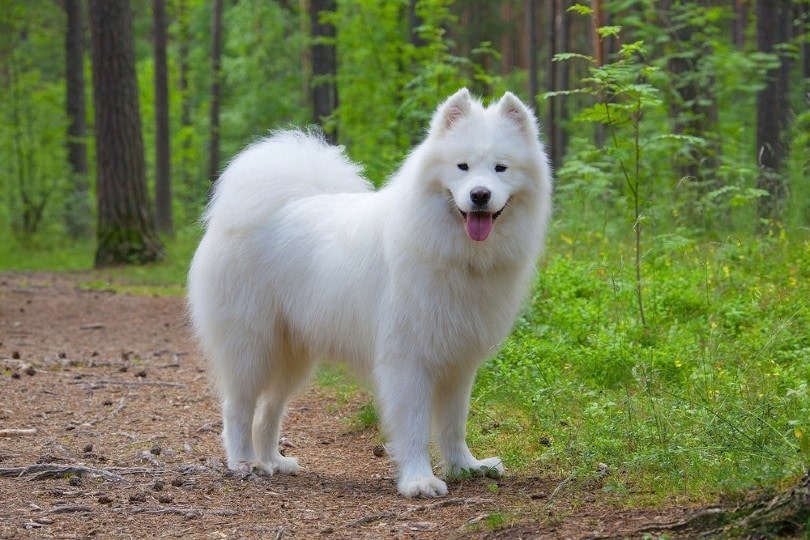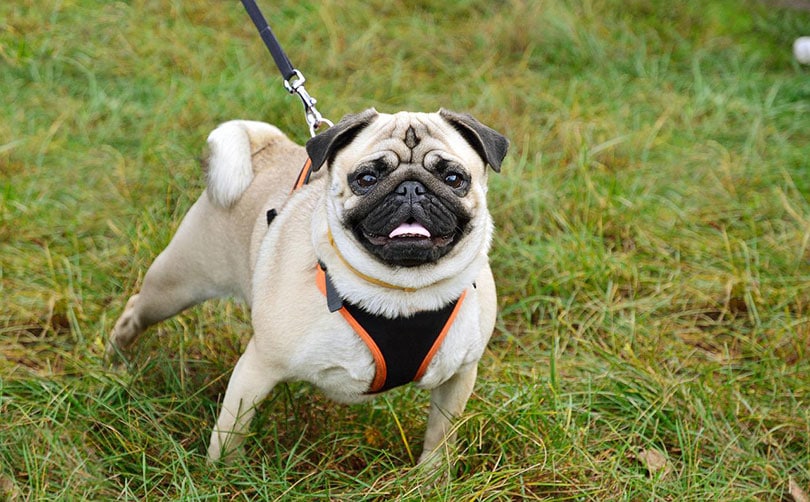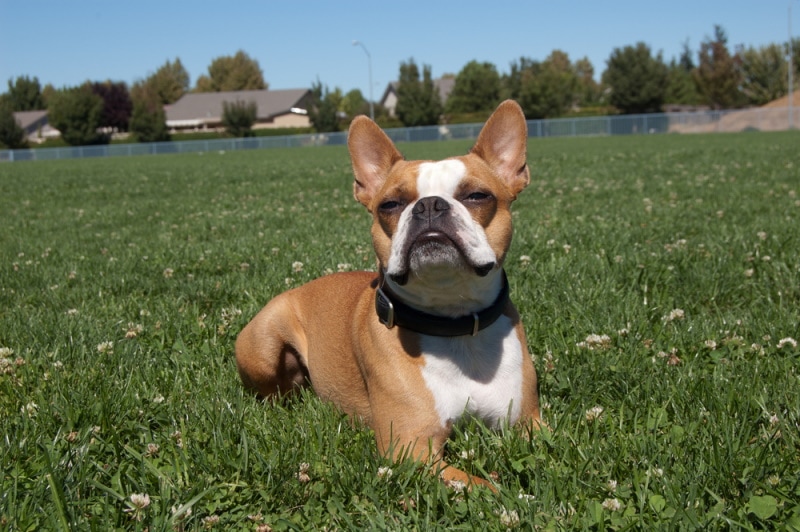Are German Shepherd Dogs Good Hunting Dogs? Facts & FAQ
Updated on
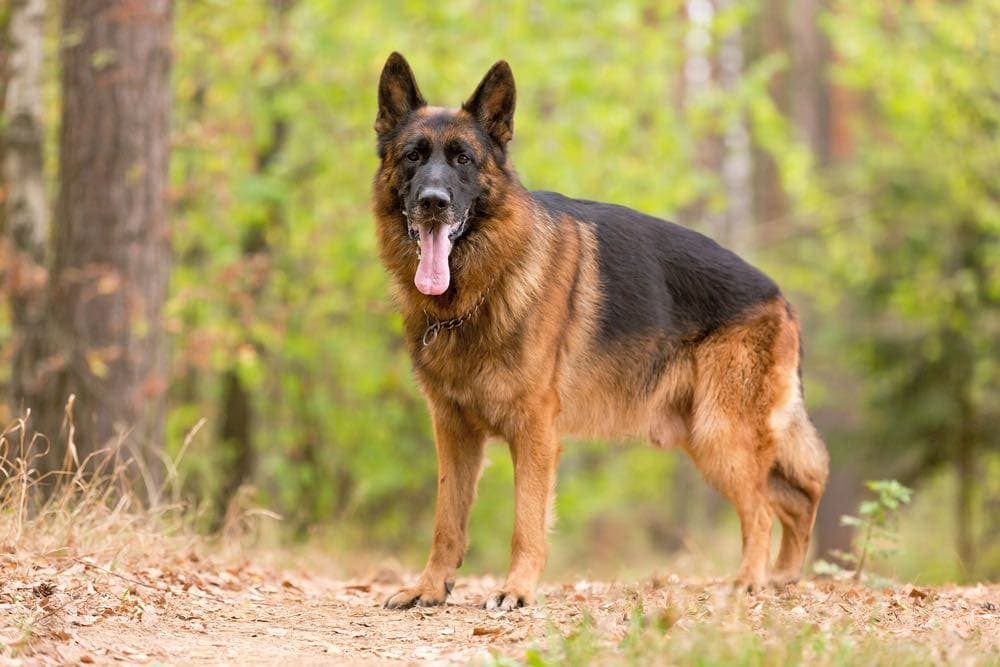
Famous for their tenacious personalities and natural guarding instincts, German Shepherds are only three spots away from being the most popular breed in America. They’re highly capable of many different jobs and activities, ranging from service dog work to top-level competitive obedience. They also have strong noses and can easily track, which usually leads to search-and-rescue opportunities. With all of these qualities, German Shepherds would seem like they could be great hunting dogs. Yet, it’s notably rare to see a German Shepherd as a gun dog.
While there are several dogs bred solely for hunting and are usually the first options, German Shepherds can be good hunting dogs. It may take more time to train them in certain subcategories of hunting, but they’re naturally obedient dogs and have the potential to become a loyal and faithful hunting companion. However, there are some serious things to consider before running out and getting a German Shepherd as your new hunting dog.
Can German Shepherds Be Trained as Hunting Dogs?
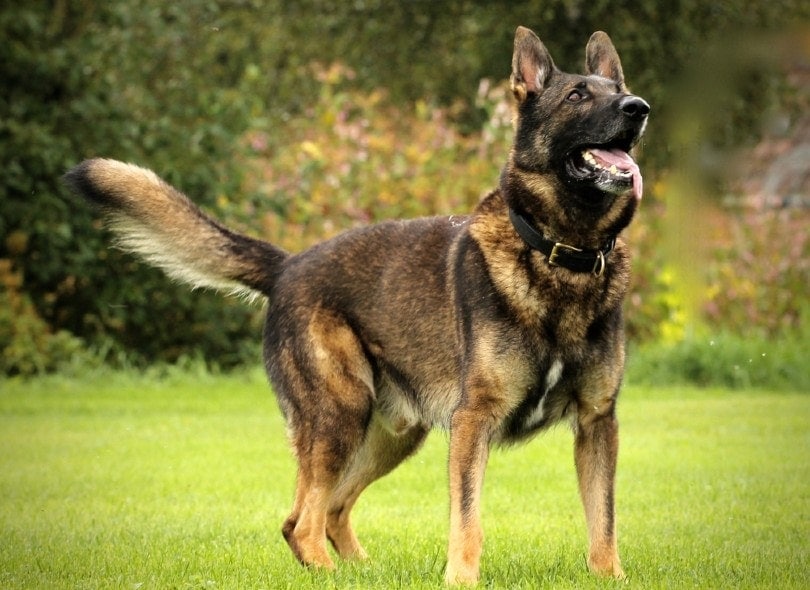
Contrary to their rarity as hunting dogs, German Shepherds are capable, even if they’re not a popular breed for hunting. Since there are different types of hunting, there are breeds that exist solely for these tasks. The best options for German Shepherds for hunting are mostly in the scent-tracking categories, especially for smaller prey like rabbits (which they all seem to love). They can also learn to retrieve fowl, but training them not to shake and damage the bird is important.
With the right temperament and an experienced gun dog trainer, they’re quite capable of being well-rounded hunting dogs. German Shepherds fall either into the companion category or the working category. For a successful chance at a hunting dog, a German Shepherd from a working bloodline is the best option. Since they’re bred specifically for working qualities, training a working GSD should be slightly easier and less likely to end up in a headache. They’re also less likely to have the temperament and behavioral issues due to the selection process that the breeders use.
German Shepherd Dogs can also make potential hunting companions and can be trained to protect the hunter if necessary. Even GSDs from working lines are affectionate and remain loyal to their owners, protecting them with their lives. Some hunters prefer a dog companion, even if they’re not necessarily trained for specific tasks. But it will take a lot of training to keep them close by and preventing them from spooking animals, so they should have a job to do besides solely being companion dogs.
About the German Shepherd
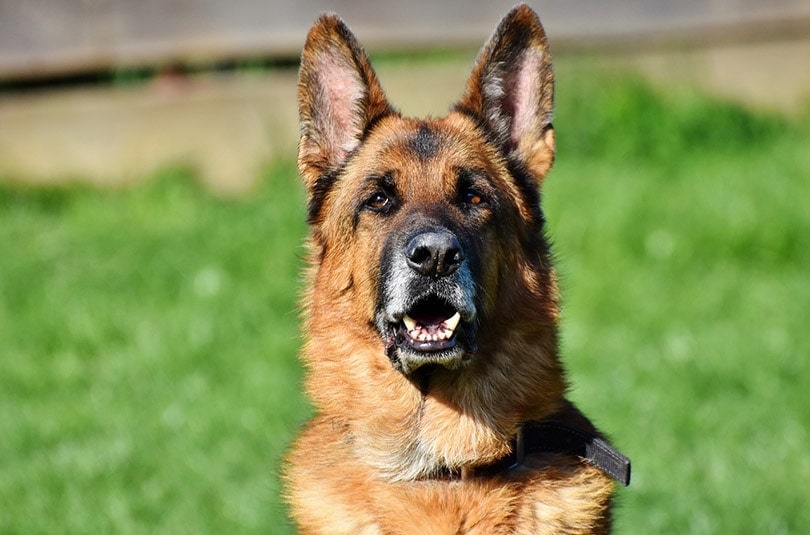
German Shepherd Size
- Height: 22 – 24 inches
- Weight: 50 – 75 pounds
- Height: 24 – 26 inches
- Weight: 65 – 90 pounds
German Shepherd Temperament
German Shepherds are strong, highly intelligent dogs that enjoy having something to do. They’re a working breed that comes from a herding background, so they’re self-assured dogs with a working dog mentality. They can be a challenge to train for owners lacking experience or confidence, but they can excel in areas like obedience and canine sports. With a calm leader that they can follow, German Shepherds are a true symbol of hard work and dedication.
Requirements of Good Hunting Dogs
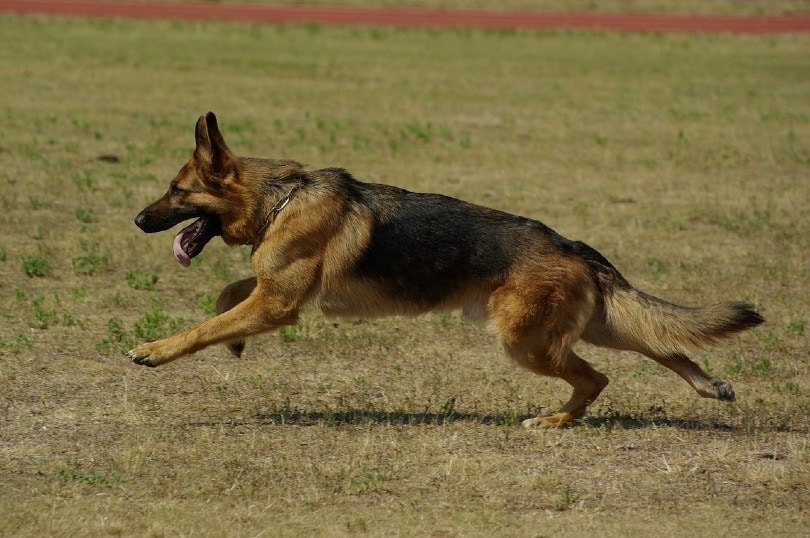
There are various tasks that a hunter may require from their dog, ranging from sight-tracking to retrieving fowl. Each style of hunting dog has similar requirements, though each also has task-specific requirements that a gun dog must possess. A gun dog must know exactly what it needs to do, especially when out in the field. For example, when sight-hunting or scent-hunting, a trained hunting dog knows when to chase and when to kill its prey, waiting on the command of the hunter. A dog trained for retrieval will know to pick up fowl gently and not shake when getting out of the water.
A good hunting dog will be obedient to the hunter and check in regularly, which is a sign of obedience and understanding the task. It will always wait for a command or cue, whether it’s a word, hand signal, or sound. It should be loyal and respectful of the hunter, while also being able to work independently when it comes time to hunt. Lastly, a good hunting dog will have a fairly predictable and even temperament, so the hunter will have less stress during a hunting session.
Conclusion
While GSDs might not be the traditional hunting dog you think of, that doesn’t mean that they can’t join you on a hunt. However, it’s going to take a bit more training. Still, these dogs are eager to please, so if you’re dedicated enough, it’s definitely possible.
See also:
Featured Image Credit: Osetrik, Shutterstock

